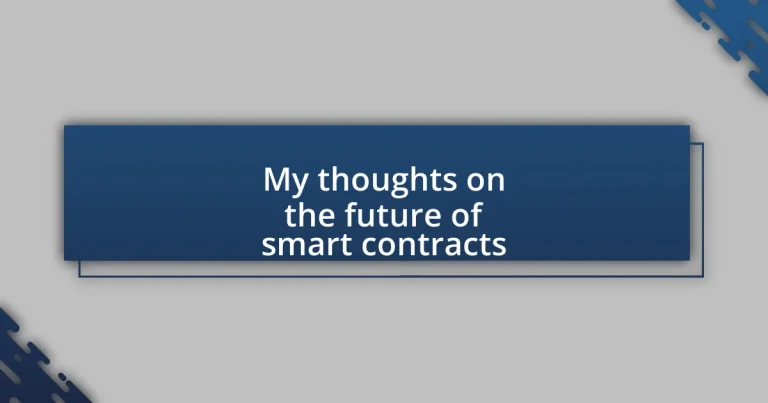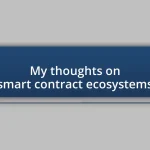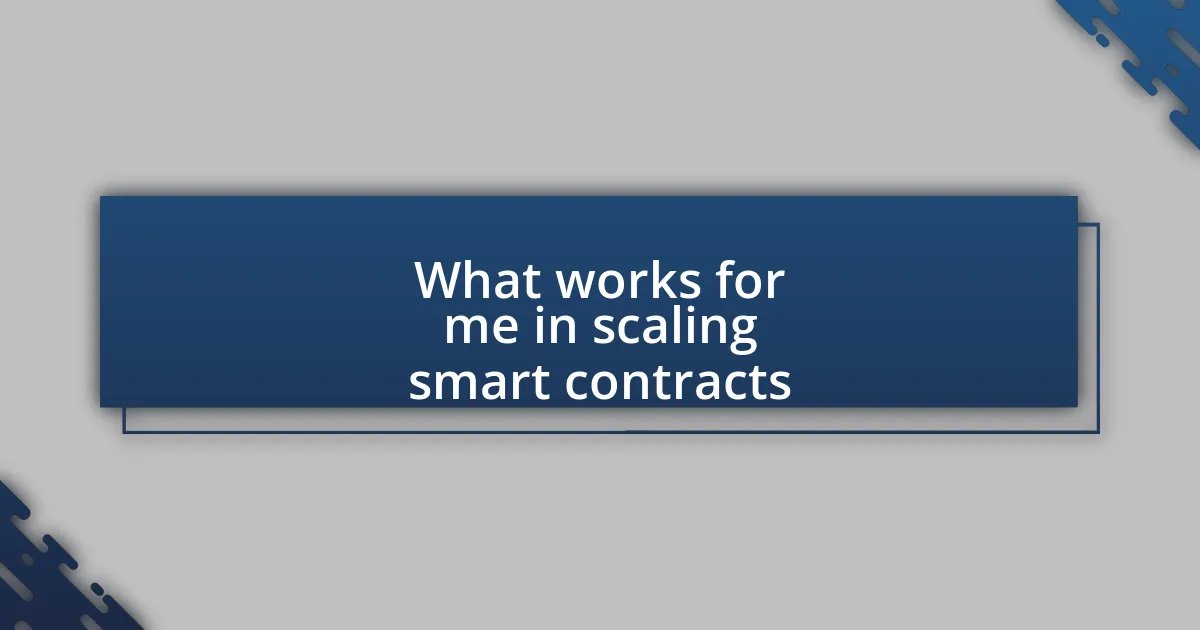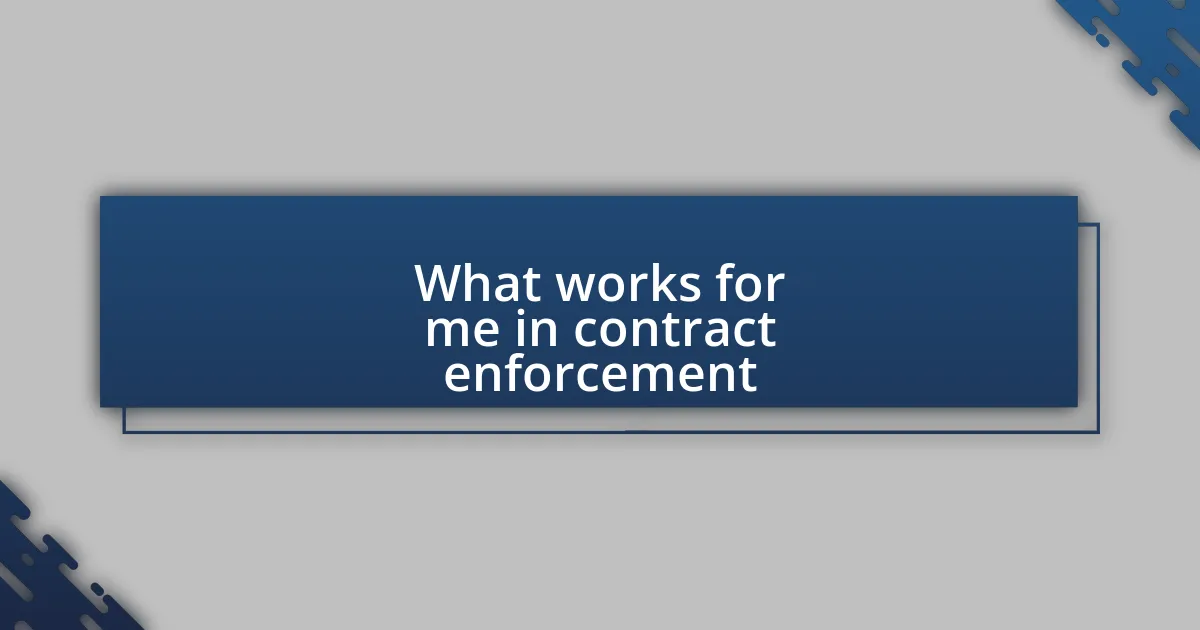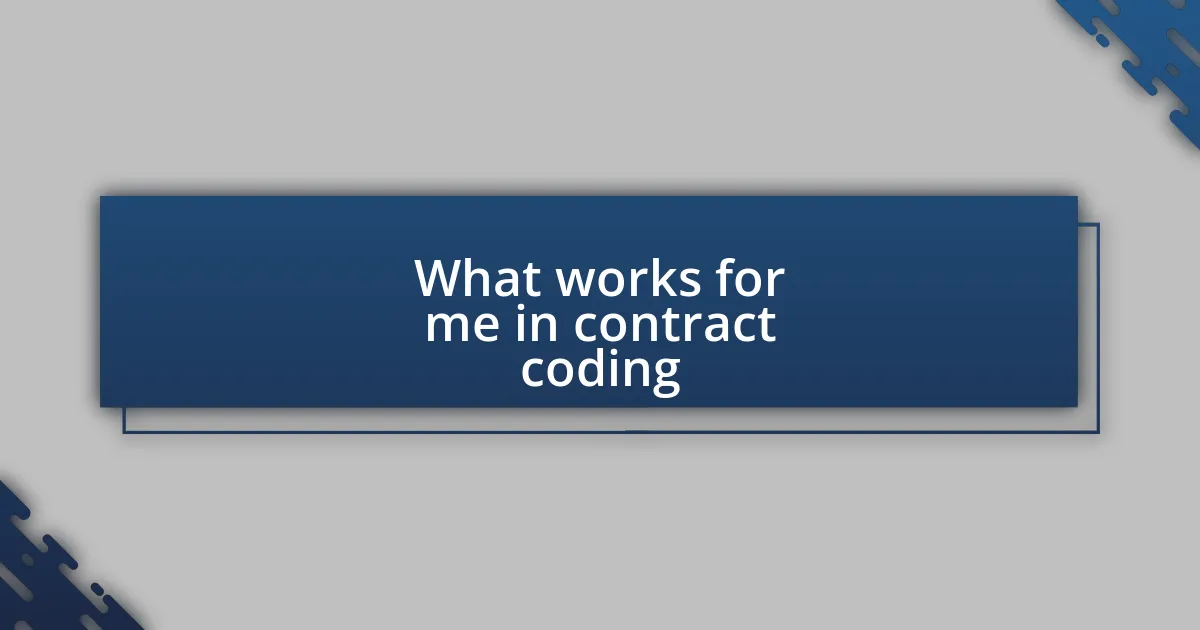Key takeaways:
- Smart contracts operate as self-executing agreements on blockchain, promoting transparency and reducing disputes.
- Key trends include integration with AI, the growth of decentralized finance (DeFi), and cross-chain compatibility, enhancing functionality and usability.
- Challenges involve coding complexity, legal uncertainty, and security vulnerabilities, impacting adoption and effectiveness.
- Future applications in finance, supply chain, and real estate could streamline processes and improve transaction efficiency.
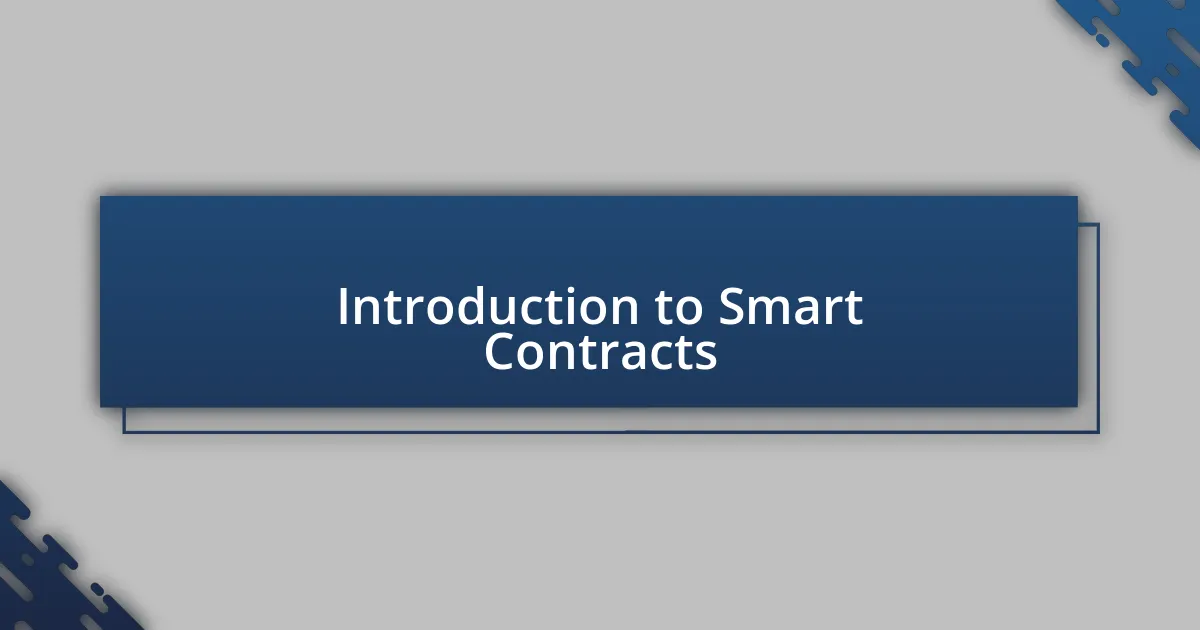
Introduction to Smart Contracts
Smart contracts are a fascinating evolution in the realm of digital agreements. They are self-executing contracts with the terms directly written into code, primarily operating on blockchain technology. This means that once set in motion, they run automatically without the need for intermediaries, which can be incredibly empowering.
When I first learned about smart contracts, I was struck by their potential to transform industries. Imagine a world where agreements are enforced by code, eliminating disputes that often arise from human interpretation. Have you ever experienced a situation where a contract was up for debate? It’s frustrating, right? With smart contracts, that frustration could become a thing of the past.
Moreover, I find it intriguing how smart contracts can facilitate trust between parties. They operate on a transparent ledger, allowing all participants to verify outcomes. This transparency is crucial, especially in environments where trust is scarce. Have you ever wished for more clarity in financial transactions? Smart contracts offer that promise, making them a significant player in the future of trade and agreements.
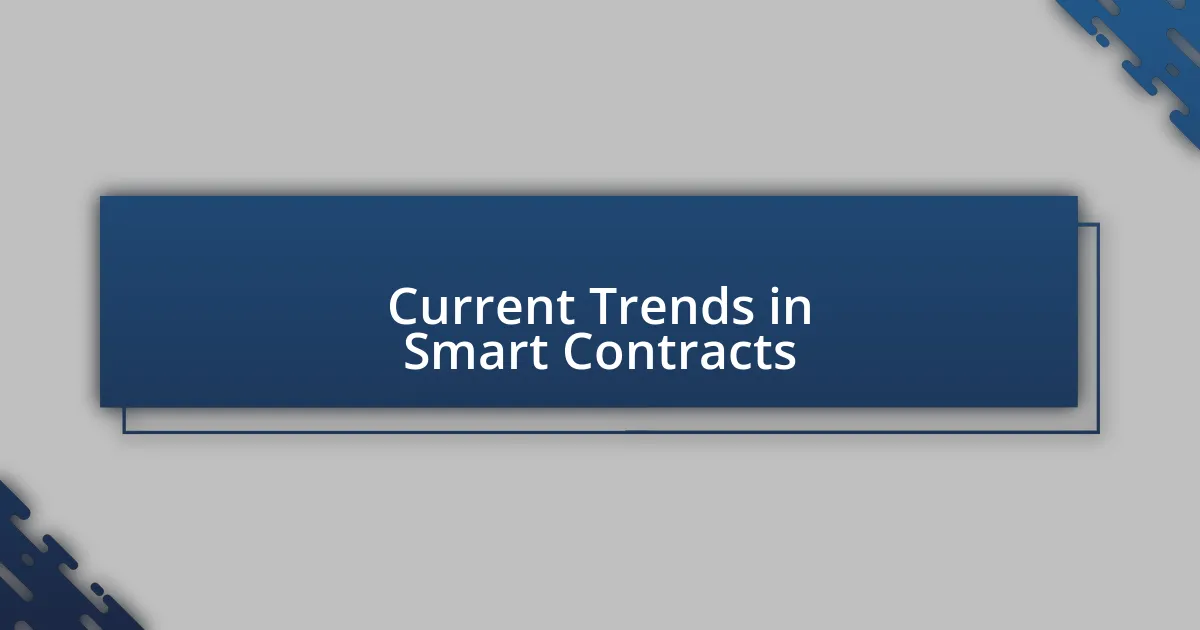
Current Trends in Smart Contracts
As I delve deeper into the world of smart contracts, I notice several current trends shaping their evolution. One significant trend is the increasing integration of artificial intelligence (AI) with smart contracts. This combination can lead to more adaptive agreements that learn and adjust over time. It excites me to think about how this could streamline processes in industries I’ve worked in, like finance and real estate, where precision and speed are critical.
Here are some key trends I’m currently observing:
- Growth of decentralized finance (DeFi): Smart contracts are foundational to DeFi platforms, enabling peer-to-peer transactions without traditional banks.
- Cross-chain compatibility: More platforms are working on solutions to make smart contracts operable across different blockchains, enhancing usability.
- Legal standardization: Increasing interest from regulators in establishing clear frameworks for smart contracts, which could pave the way for their wider acceptance and use.
- Interoperability with IoT: Smart contracts are beginning to link with Internet of Things (IoT) devices, opening new avenues for automatic contract execution based on real-world events.
Reflecting on these trends, I remember attending a tech conference where a developer shared a vision of smart contracts transforming supply chains. They imagined a scenario where a shipment’s arrival would automatically trigger payments. It was a lightbulb moment for me, realizing the vast possibilities these technologies hold. I can’t help but feel excited about what the future has in store.
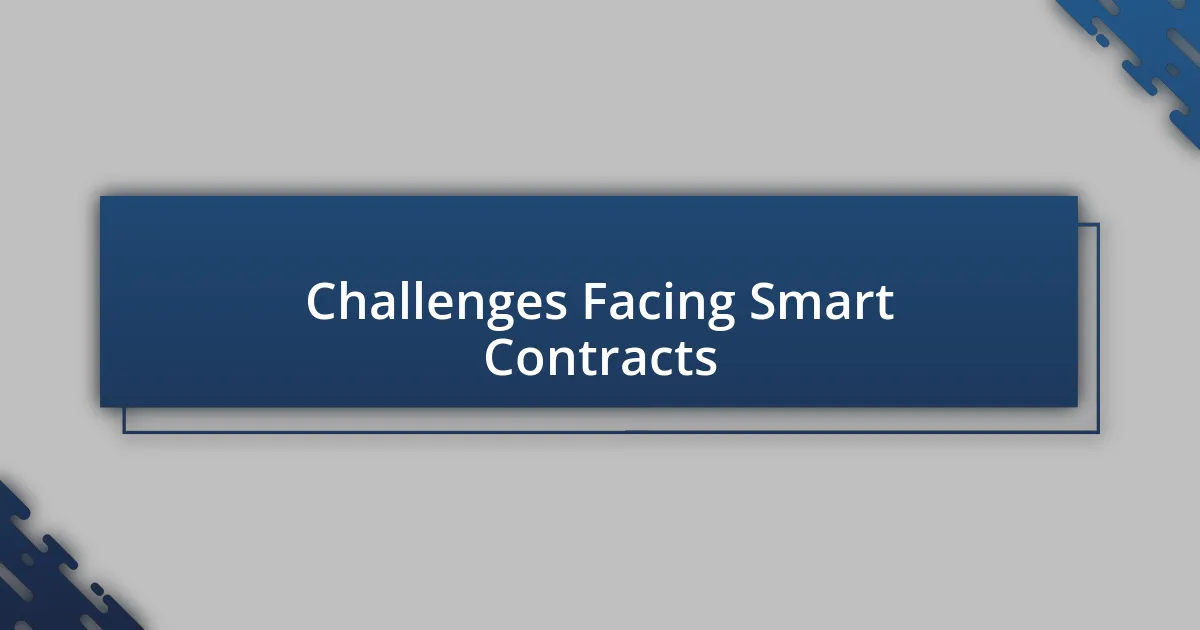
Challenges Facing Smart Contracts
Smart contracts, while promising, face several challenges that can hinder their widespread adoption. One major issue is the complexity of coding these contracts. I recall a project I was involved in where the intricacies of the code resulted in unexpected bugs that could have serious repercussions if left unaddressed. This raises concerns about the technical proficiency required to create and manage smart contracts effectively.
Another significant challenge lies in the legal landscape surrounding smart contracts. Regulations are still catching up with the technology, leading to uncertainty in enforcement and recognition. I often find myself pondering the legal implications during discussions, especially when considering how traditional contract law intersects with these automated agreements. This ambiguity can deter businesses from fully embracing smart contracts, despite their potential benefits.
Finally, security vulnerabilities present a critical hurdle. Smart contracts are only as secure as the code they are written in, and any flaw can be exploited. I remember reading about a hacking incident that drained millions from a DeFi platform — it was a stark reminder of the risks involved. It demonstrates the importance of rigorous testing and audits to ensure robust security measures are in place before deploying smart contracts.
| Challenge | Description |
|---|---|
| Complexity of Coding | Difficulty in creating error-free contracts due to intricate coding requirements. |
| Legal Uncertainty | Ambiguity in regulation can deter adoption and enforcement of smart contracts. |
| Security Vulnerabilities | Exploitable flaws in the code can lead to significant financial losses. |
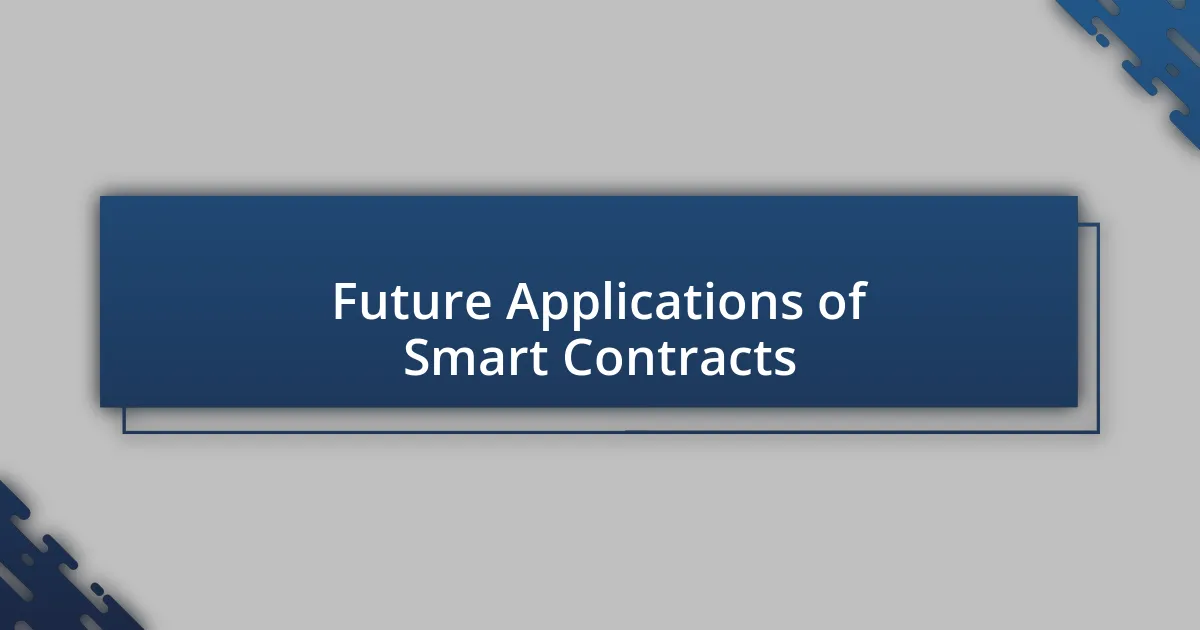
Future Applications of Smart Contracts
As I reflect on the future applications of smart contracts, I envision transformative changes across several industries. For example, supply chain management could greatly benefit from using smart contracts to track goods in real time. Imagine a scenario where every shipment automatically triggers payment upon delivery confirmation, reducing delays and disputes.
In the realm of finance, I see smart contracts enabling decentralized finance (DeFi) platforms to operate with more autonomy and efficiency. I often wonder how this might change our relationship with banks. Picture a world where lending agreements are self-executing based on predetermined criteria, potentially allowing for more equitable access to capital.
Additionally, the real estate sector could leverage smart contracts for property transactions. The idea of transferring ownership automatically upon payment completion is fascinating. I recall a conversation where someone expressed frustration over lengthy closing processes; smart contracts could simplify this, making the experience smoother and more transparent for all parties involved.
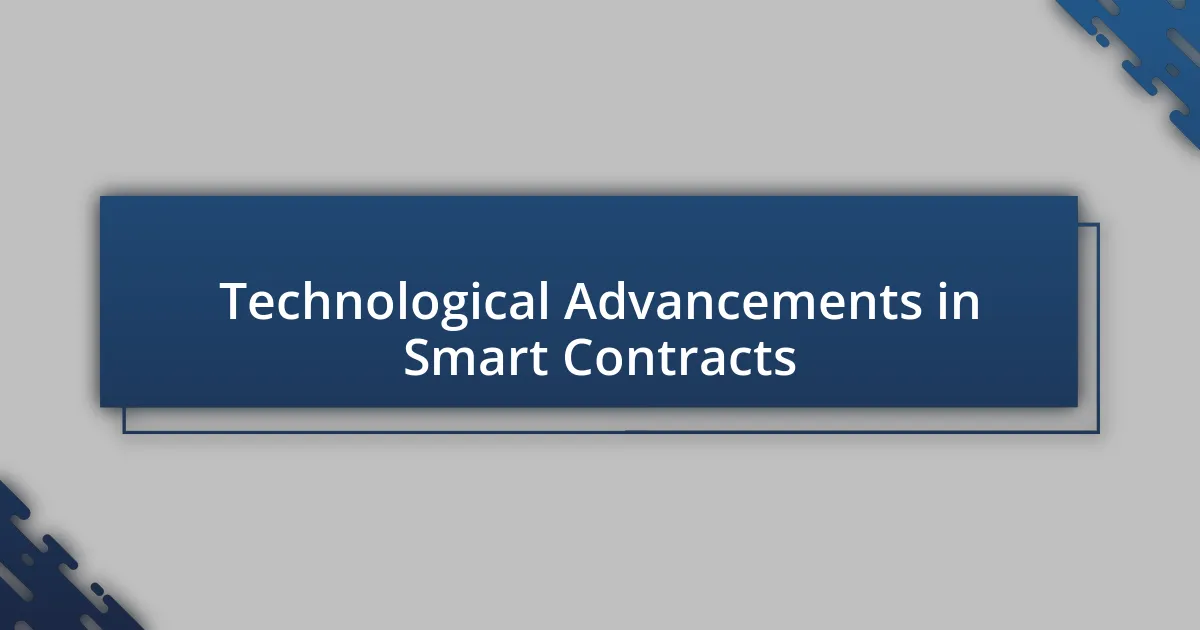
Technological Advancements in Smart Contracts
Technological advancements in smart contracts are set to revolutionize how we interact with digital transactions. I often think about the emergence of blockchain platforms that offer greater scalability and security. Just last week, I came across a project using layer 2 solutions, which can significantly reduce transaction times and costs, making smart contracts even more accessible for everyday users.
Another fascinating development is the integration of artificial intelligence (AI) with smart contracts. This combination can facilitate more complex business logic and decision-making processes. I remember attending a tech conference where a speaker demonstrated a program that analyzes market conditions and automatically adjusts contract terms. It made me realize how proactive these systems could become, prompting me to wonder about the potential for entirely new business models born from this synergy of technology.
Moreover, interoperability among different blockchain networks is a hot topic. Imagine a world where smart contracts can interact seamlessly across platforms; this would expand their applicability immensely. I often discuss with peers how such advancements could create a more cohesive digital ecosystem. Have you ever considered how much easier it could be to streamline operations if we could unify processes across various industries? It’s an intriguing thought, and it highlights how much there is still to explore in this evolving landscape.
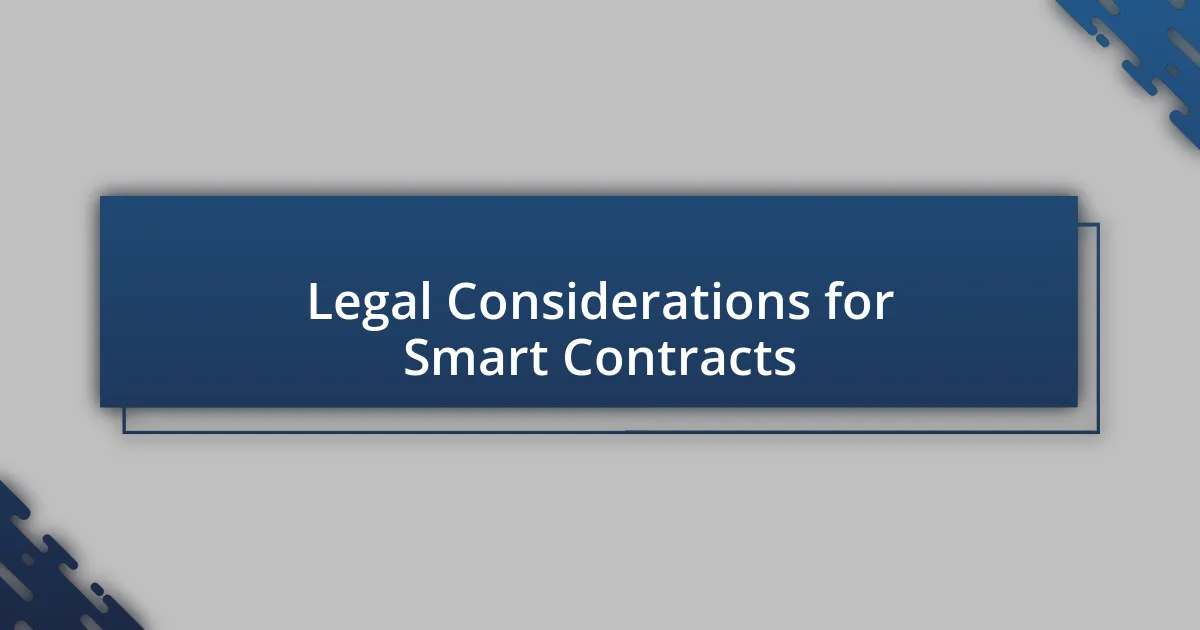
Legal Considerations for Smart Contracts
Legal considerations surrounding smart contracts are crucial yet often overlooked. From my experience, one of the primary concerns involves enforceability. I remember discussing this with a colleague who pointed out the hesitance some legal systems have in recognizing these digital agreements as valid contracts. Which has made me wonder: how will jurisdictions evolve to accommodate this innovative approach to contracting?
Another significant aspect is liability. When a smart contract executes automatically, it raises questions about who is responsible in cases of errors or unforeseen outcomes. I recall a situation where a poorly coded contract resulted in substantial financial loss for a startup. It made me realize that having clear legal frameworks and guidelines is essential to protect all parties involved. How can we navigate these complexities without adequate legislative support?
Lastly, compliance with regulations emerges as a critical factor. Many industries face stringent legal guidelines, and ensuring that smart contracts adhere to these standards is an ongoing challenge. I’ve often pondered about the role regulators will play in shaping the future of smart contracts. Could proactive collaboration between tech innovators and legal experts create a more robust framework? It’s a compelling area of exploration, reflecting the balance between innovation and regulation.

